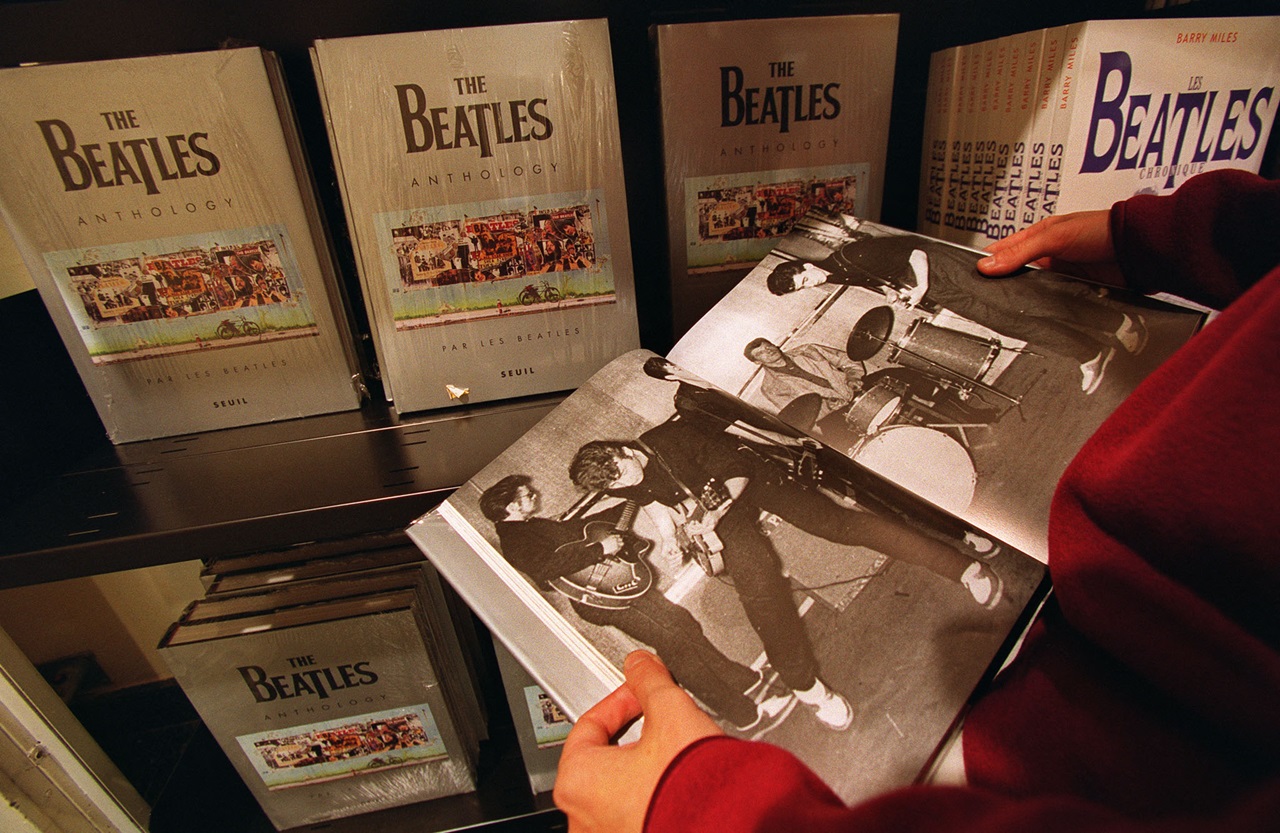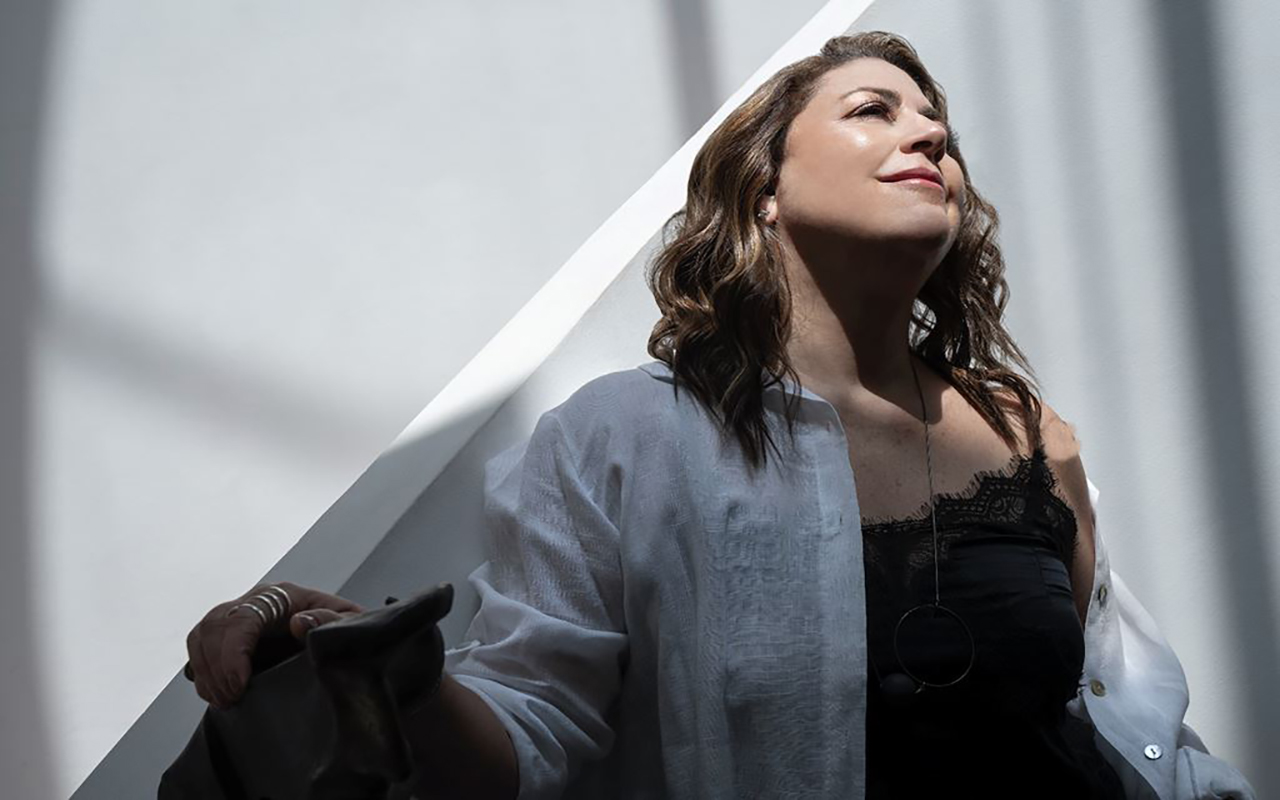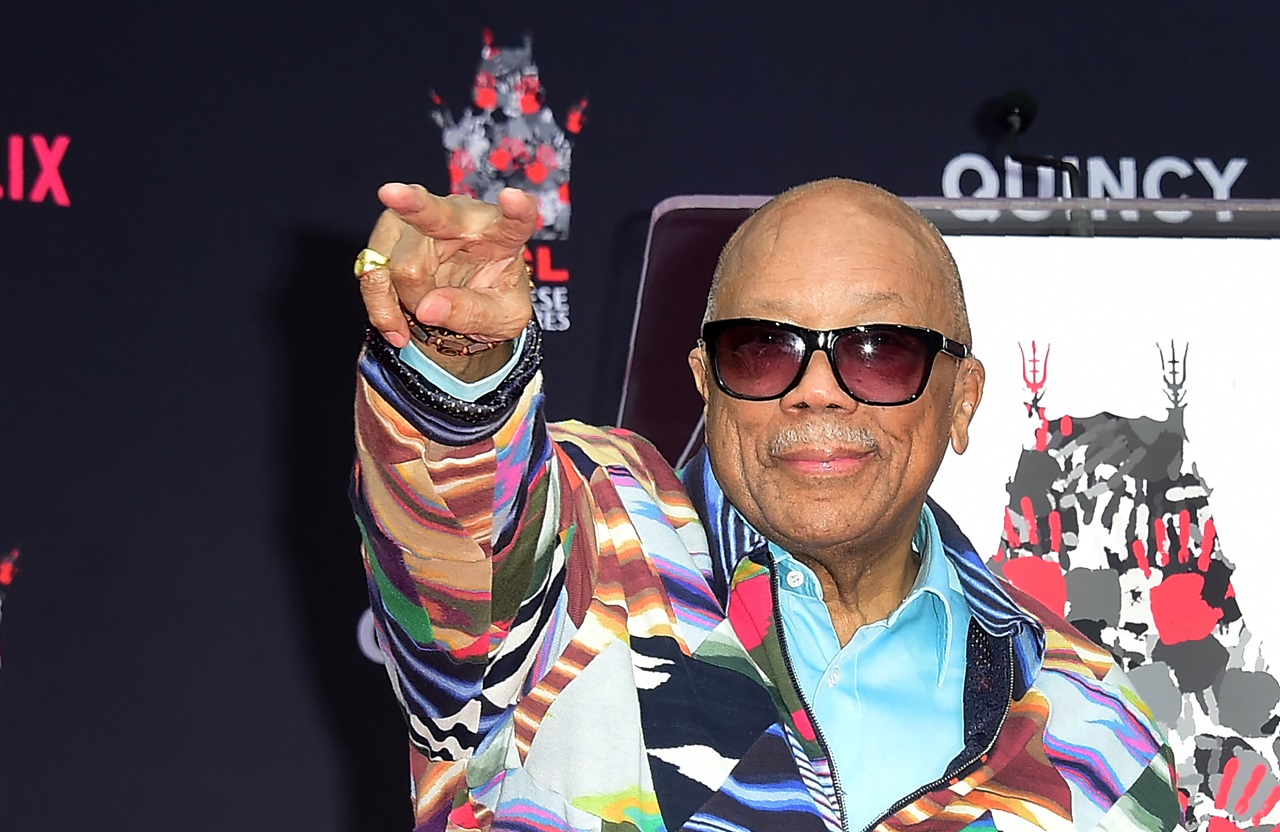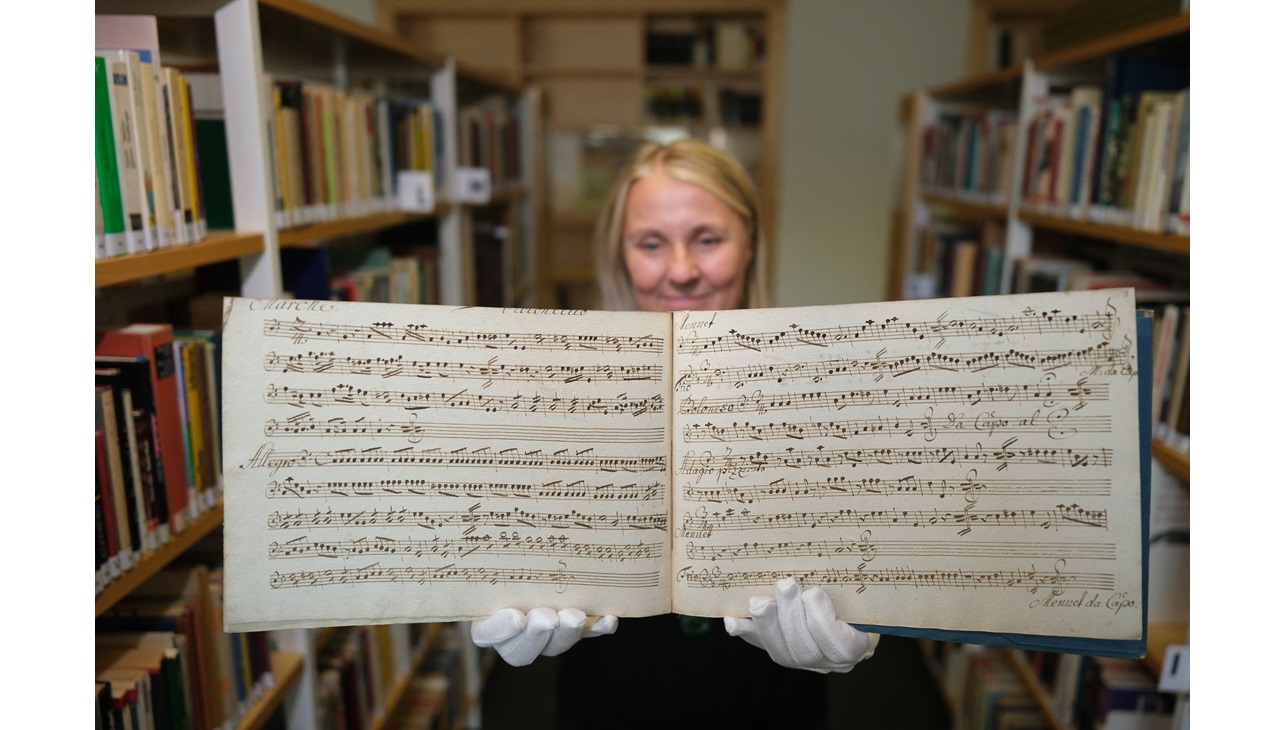
Linda Briceño, breaking myths one note at a time
The Venezuelan artist has become the first woman to receive the Latin Grammy Award for the best producer of the year.
The story of Linda Briceño is made up of two voices in harmony.
The Venezuelan artist has become an international icon after being the first woman to receive the Latin Grammy Award for best producer of the year in 2018.
From the sofa of her apartment in New York, Linda spoke with AL DÍA about her career and all the women she has been since she was 16 years old.
Linda Briceño is one of the living testimonies of the Venezuelan musical phenomenon known as El Sistema — the Orchestra System. The story of how she got involved in music - encouraged by her father, Andrés Eloy Briceño - has been repeated constantly. However, the artist says that there’s another part of the story that needs to be told.
It’s about her mother’s effort to encourage her daughters to join the Simón Bolívar Musical Foundation, also known as El Sistema - a systematized music education program founded in 1975, and in which musicians such as Diego Matheyz, Gustavo Dudamel, and Pedro Eustache had the opportunity to become the professionals they are today.
Along with her sister, Linda began her musical training at the age of eight, splitting her time between education at home (hand in hand with her father) and the academia of La Rinconada venue in Caracas.
“I started as a classical percussionist and I was the first girl who was allowed to choose two instruments, and my dad insisted that I should also take up the trumpet,” she told AL DÍA. “Since I was a little girl I grew up in that place, and that’s where my journey through music began.”
The influence of her father allowed her to advance by leaps and bounds in her training, but few people know the sacrifices involved in starting such a career at such a young age.
The great majority of the children that make up the System of Orchestras in Venezuela dedicate all their time to trying to be part of the National Orchestra and to traveling around the world, something that Linda could not achieve and that led her to her first break with music.
“I left the music for a while because between 10 and 12 years old I had lost very important things from my childhood. I had skipped stages; I didn’t know what it was like to have friends… I knew a lot about music but little about life.”
Later on, in part thanks to her father’s insistence, she resumed her trumpet and began her reconciliation with her passion, which this time was fueled by the emergence of pop culture, a phenomenon that came to Venezuela through cable television and that made an impression on young Linda. Thus she began to compose her first songs, becoming more and more convinced of her vocation as a singer.
It was then that she found the first records that would change her life.
“If you go to my house, in Venezuela, you realize there’s a bunch of stuff, and many are records, instruments or books,” she recalls. “One day sculling between the jazz records I found the record of a very famous jazz singer called Diane Reeves, a special edition of Chet Baker, and a record by Tom Harrell.”
“Those three albums really made a mark on my life,” she says.
Diane Reeves’ Triste solo would accompany her for the rest of her life, and opened the gate to her experience with improvisation in jazz.
“Improvisation is fundamental in jazz. If there is no improvisation, there is no jazz; if there is no swing, there is no jazz; if there is no blues, there is no jazz either. Those are the three main ingredients, and I learned the first one through imitation.”
By chance, her first performance with her father’s orchestra was also her first experience as a singer and, she says, marked a watershed moment in her career.
“In Venezuela, there is a lot of talk about the daughter of Andrés or the soloist of the Big Band, or the worship leader of this or that church, but among these three titles that were given to me during that time, there was a Linda who wanted to come out.”
“I wanted to be recognized by my own merits, I wanted to get ahead without that figure of my dad, because, although I owe him almost everything in terms of influence, most of the creative processes in terms of composition were moments in which I was alone. “
In this way, a new voice began to emerge within the shell of the young artist who, more than anything, longed to tell her truth.
After an important experience with the Big Band of the Simón Bolívar Conservatory -where she had the opportunity to work with artists like Wynton Marsalis- Linda discovered the path between academia and popular music, as well as the need she had to go out and find her own way.
“At that time I was 16 or 17 years old, and I was an important figure in the project,” she recalls. “I was the only singer and the only one who improvised.”
“Improvisation is fundamental in jazz. If there is no improvisation, there is no jazz"
At the same time, Linda was part of a worship church and divided her time between fulfilling her responsibilities and juggling responsibilities associated with her vocation.
It was at this moment when she decided to break with imposed ties and open the door to that person who was always inside her.
Between personal disagreements, ruptures, and separations, Linda chose to embrace unknown independence that would finally take her to New York in 2013.
“I started making decisions about what I wanted to look like, how I wanted to dress. I no longer had to dress like an opera singer for a jazz concert.”
And like a Ziggy Stardust, the image of the artist was revealed.
“When I moved to New York, I entered a strong depression process, to the point where my own hair let me know, and that was when I decided to cut it. It was a moment of liberation.”
This is how Ella Bric is born, an alter ego that stars in her new musical production.
It is no secret to anyone that the Venezuelan reality is currently one of suffering, crisis, and displacement.
When we asked Linda what it means to be part of the current Venezuelan diaspora, she affirms with admiration and respect that the true diaspora is made up of “the brave young people who are walking from Barquisimeto to Peru.”
“I believe that they are really the ones who are part of that diaspora, because, although I experienced very difficult times in New York, I always had a privileged place compared to the rest of Venezuelans. That’s why every time I talk about emigrants from Venezuela I say that with great respect because many of us don’t know or have any idea what Venezuelans are going through right now.”
Linda was lucky to have those she calls her “four angels”: Mireya Cisneros, Alberto Vollmer, Juan Luis Guerra, and Arturo Sandoval, the people who helped her arrive in New York.
It was then when she began to compose Eleven, the production that made her worthy of a Grammy award.
“Eleven came to me a year ago,” she tells us. “I was going through a very difficult break up that led me to connect with my first partner, to reevaluate that first love.”
While experimenting with her alter ego, a story and a melody arose. With the help of Fernando Osorio, a writer who has had an illustrious career, she was finally able to put it on paper.
“Thanks to his humility, and the great maestro he is, we gradually removed the layers of history and managed to tell the truth,” she says. “The product was a song about exile.”
The same night she talked with Osorio, Linda made the arrangements and produced the song for which she is now recognized.
Simultaneously, she collaborated with the production of MV Caldera, a Venezuelan singer whose work Segundo Piso also earned Briceño the Grammy Award as a producer.
“This has been a year of transformations, of separations, and that is why this award meant so much. It has been a year of justice for all those years of work,” she observed.
For many, it is difficult to determine what the producer’s work really means and, therefore, the importance of being recognized for it.
For her, the role of a producer “is an act of resignation, because it is not about you.”
“I had the need to become a producer because I had to understand that, although I have the idea very clear in my head, at the time of delegating, the product doesn’t resemble in the least to what I had conceived.”
RELATED CONTENT
It’s then a matter of protecting ideas, which has been a fundamental factor throughout her career.
Her personal purpose with Eleven, for example, was to leave her mark on every step of the process. “I wanted the arrangement to be like Mahler’s Fifth. I wanted Eleven to cause the same emotion.”
When it came to working with MV Caldera, her job was to delegate to those who knew about Latin music.
“Production was more strategic,” she explains. “That record is a gift for Venezuela.”
Few know what happens after you win a Grammy.
During the 2018 ceremony, Linda received a unique tribute — but the next step after raising the statuette is not so obvious.
“The Grammy was a surprise for everyone, but especially for me,” she says. “I was the first one to be surprised because it’s the most difficult category in the awards because the first round to achieve the nomination is a specialized committee of only producers and engineers. Normal members can’t vote on that.”
The weight of her achievement has deeper dimensions.
In an industry still controlled mostly by male figures and a machinery that obscures those who struggle to make a place for themselves, there are thousands of people who go unnoticed.
“This has been a year of transformations, of separations, and that is why this award meant so much. It has been a year of justice for all those years of work”
These are the artists Linda calls “the hidden figures.”
“I am the executive producer of all my products. I’ve sat with so many people with so much money, that all they have is that.”
The lack of faith in her project doesn’t surprise her at all, she explains: “investing in music is a very high risk,” and one way or another she appreciates that it is so.
“I think that in some way the universe is not allowing other offers to come because when there is so much money involved creativity and integrity are at stake,” she says.
And at this point, it is inevitable to talk about the elephant in the room when it comes to Latin music: reggaetón.
Linda preferred to review her own prejudice and took the time to closely observe the creative process of this mega-industry, especially considering the work of composers and the artists themselves.
“The problem that I see is that there is no differentiation. Artists like J Balvin or Maluma are entertainers; they are there to entertain. The composers are there to write the hits for these guys that mostly come from a very complex social reality.”
The producer recognizes the effort and hard work of these artists to get where they are today, but says the underlying problem is “a social responsibility.”
“I have never been a participant in censorship. I believe that art, just as it must be accessible to everyone, should not be censored, wherever it may come from. But there is a very important issue of social responsibility which you have to keep your eye on.”
Here neither the composer nor the artist comes into play. The discussion focuses on the executives who distribute this music. Who are the ones in power in the music industry? “The record companies.”
In one way or another, what Linda calls “the globalization of gender” is what deeply affects the new artists who dare to take a place in the industry; nevertheless, she believes that this year, “justice was served.”
“I think there was justice when you see a Jorge Drexler winning a Grammy and thanking all artists of all genres. As artists who are inside [the industry], we must recognize that the problem is not reggaetón but the globalization and the excess of executives who are in that industry. That’s why when I gave my speech I insisted on female representation. In the industry at a Latin American level, there is not a woman figure that is directing the labels.”
The artist says that after receiving the award many women contacted her on social media to congratulate her on her work and to share with her their own experiences as producers in the media.
“The retribution of this award is not only for me but for all the women around the world that still don’t know how to face the monster. What this award made them think was that ‘If she can, I can too’.”











LEAVE A COMMENT:
Join the discussion! Leave a comment.